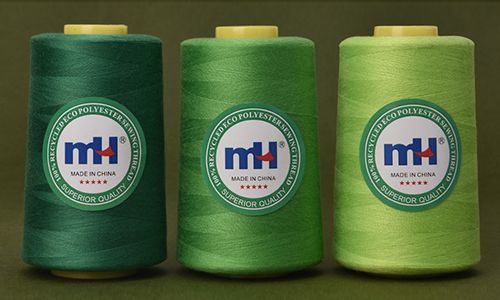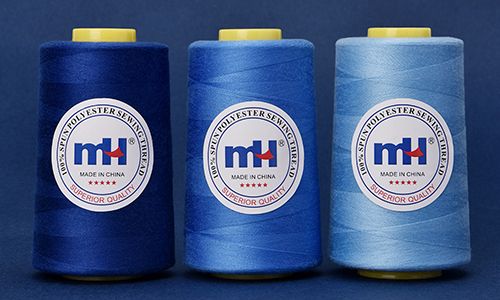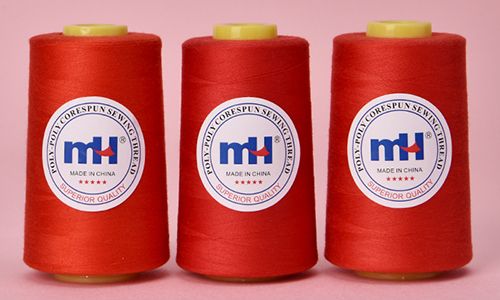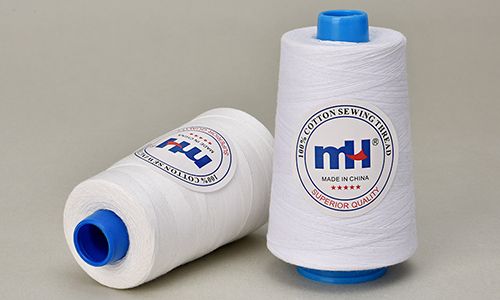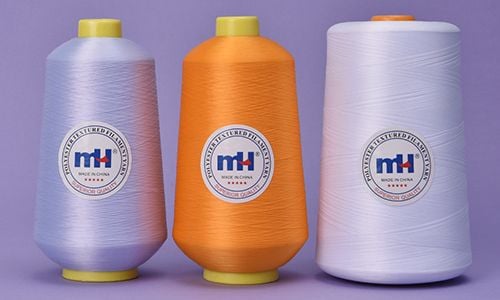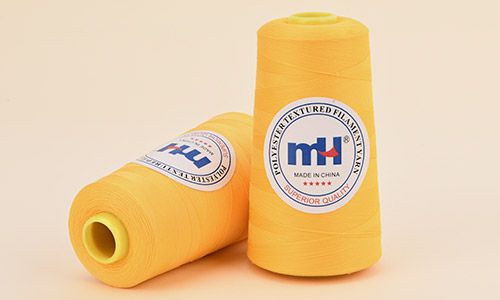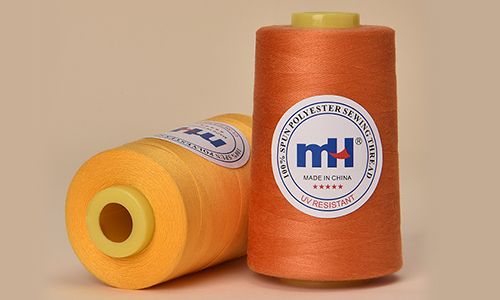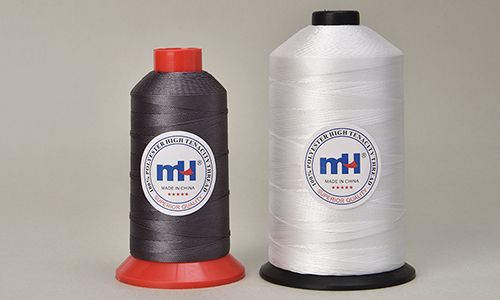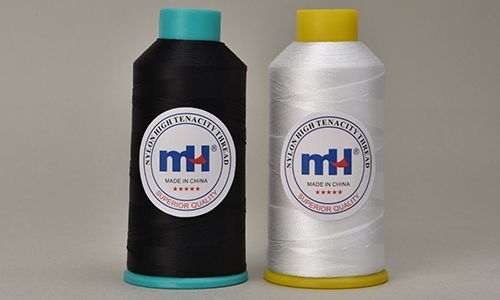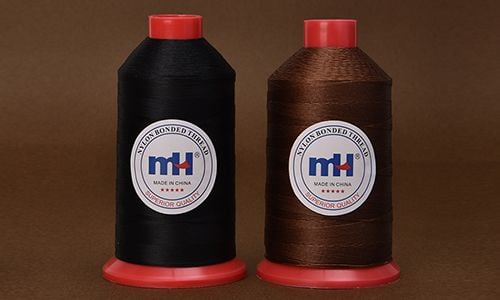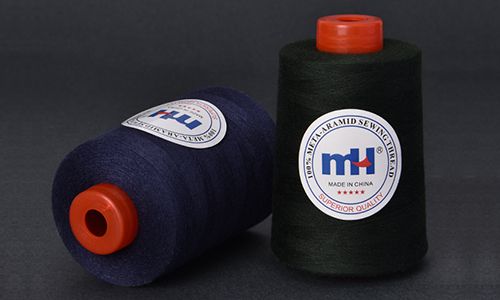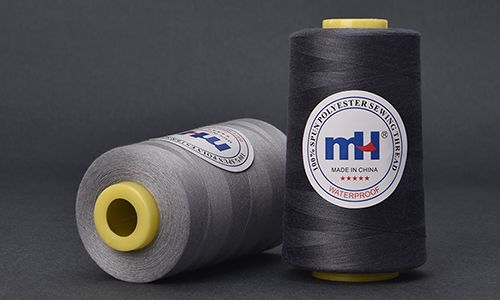Apparel
- Children's Wear
- Underwear
- Sportswear
- Leather Fashion
- Denim Fashion
- Workwear
- Special Workwear
- School Uniform

Children's Wear
When choosing sewing thread for children's wear, you need to consider a range of features to ensure that the garments are durable, safe, and comfortable for kids.
Thread Material: Select a thread material that is suitable for the fabric type. Cotton, polyester, and blends are commonly used for children's clothing. Polyester threads are known for their durability and resistance to fading.
Thread Sizes:
- For children's thin clothing, such as lightweight cotton, voile, or silk, choose a finer thread to match the delicate nature of the fabric. Finer threads are less likely to create visible seams or puckering on thin materials
- For thick clothing fabrics, such as heavy denim or wool, opt for a thicker thread that can handle the weight and density of the material. A thicker thread will provide the necessary strength to prevent seams from unraveling or breaking.

Underwear
Material: Choose a thread material that complements the fabric of your underwear. Common thread materials include cotton, polyester, and nylon.
- Cotton Thread: This thread is a good choice for natural fiber fabrics like cotton, as it provides a soft finish and won't create friction against the skin. However, cotton threads might not be as strong as synthetic threads.
- Polyester Thread: Polyester threads are strong, durable, and have some elasticity. They work well with a variety of fabrics, including synthetic blends commonly used in underwear. They are less likely to break under stress and can withstand washing and wear.
Size (Thread Thickness): Thread thickness is usually denoted by a number, and the higher the number, the finer the thread. For underwear, you generally want to use a finer thread to prevent bulkiness at the seams and to achieve a more delicate finish. Threads labeled as "50/2," "60/3," or similar are suitable for underwear sewing.
Stretch and Elasticity: Since underwear typically requires a degree of stretch to ensure comfort and fit, choosing a thread with some elasticity can be beneficial. Nylon and polyester threads have inherent stretch properties, which can help maintain the flexibility of the seams.

Sportswear
Material:
- High Performance Fibers: Opt for threads made from high-performance materials like polyester, nylon, or specialized sportswear threads. These materials offer durability, resistance to moisture, and excellent tensile strength.
- Stretch and Flexibility: Choose threads with some level of elasticity, especially for seams that will experience a lot of movement. Threads with spandex or elastane blends can maintain flexibility without breaking.
Sizes:
- Thread Size Measurement: Threads are measured in denier or tex. For sportswear, consider threads with denier or tex measurements that balance strength with flexibility. Medium to heavy threads are suitable to withstand stress.
- Fine Threads for Delicate Areas: For lightweight and delicate sportswear components, such as linings or stretchy panels, opt for finer threads that won't compromise the fabric's integrity.

Leather Fashion
Material:
- Thread Material: Choose a thread material that is strong, durable, and compatible with leather. Common options include bonded nylon, polyester, and heavyweight cotton threads. These threads offer excellent strength and abrasion resistance.
- Thread Color: Select thread colors that either match the leather's color or provide a contrasting, decorative element. The choice of thread color can significantly impact the final appearance.
Sizes:
- Thread Size Measurement: Opt for thicker thread sizes that match the weight and thickness of the leather. A heavier thread ensures strong seams that can handle the density of leather.
- Needle Compatibility: Use appropriately sized needles that match the thread thickness and leather material. Special leather needles or heavy-duty needles are often recommended.

Denim Fashion
Material:
- Thread Material: Choose a thread material that is strong and durable to match the robust nature of denim. Common options include polyester, cotton-wrapped polyester, and heavy-duty cotton threads.
- Thread Color: Opt for thread colors that either match the denim fabric's color for discreet seams or provide contrasting topstitching for a decorative effect.
Sizes:
- Thread Size Measurement: Select thread sizes that complement the thickness and weight of denim. A medium to heavy thread is recommended to handle denim's dense weave.
- Needle Compatibility: Use needles that are suitable for denim and can handle the thread thickness. Consider using denim or heavy-duty needles.

Workwear
Material:
- Fabric Compatibility: Choose a thread material that complements the workwear fabric. Common options include polyester and polyester-core spun threads for their strength and versatility.
- Workwear Thread Speacial Requirements: Workwear used in chemical plants and outdoor environments requires chemical and UV-resistant sewing thread to ensure safety and stability over long-term use.
Sizes:
- Thread Size Measurement: Thread size, measured in denier or tex, should match the fabric's weight. Medium to heavy threads are suitable for uniforms, ensuring they can withstand daily wear and washing.
- Seam Visibility: For discreet seams, use finer threads that blend well with the fabric, especially for lightweight uniform materials.
Choosing the right sewing thread is key to ensuring the quality and performance of workwear. Different types of sewing threads have different characteristics and can be selected according to the needs of different parts and uses of the workwear to ensure its durability, safety, and comfort.

Special Workwear
Material:
- Thread Material: Choose a thread material that aligns with the workwear's specific needs. Common options include flame-resistant threads, high-tenacity threads, and specialized threads designed for specific industries.
- Flame Resistance: For industries where flame resistance is crucial, opt for threads made from inherently flame-resistant materials or those treated with flame-resistant coatings.
Sizes:
- Thread Size Measurement: Choose thread sizes that provide the necessary strength and durability for the workwear's intended use. Consider the weight and density of the fabric.
- Thread Thickness: Select a thread thickness that matches the fabric's thickness. For heavy-duty workwear, medium to heavy thread sizes are often suitable.

School Uniform
Material:
- Fabric Compatibility: Choose a thread material that complements the uniform fabric. Common options include polyester and polyester-core spun threads for their strength and versatility.
- Uniform Use: Consider the purpose of the uniform. If it's for formal occasions, like dress uniforms, opt for threads that enhance the uniform's polished appearance.
Sizes:
- Thread Size Measurement: Thread size, measured in denier or tex, should match the fabric's weight. Medium to heavy threads are suitable for uniforms, ensuring they can withstand daily wear and washing.
- Seam Visibility: For discreet seams, use finer threads that blend well with the fabric, especially for lightweight uniform materials.
 Whatsapp:
Whatsapp: 